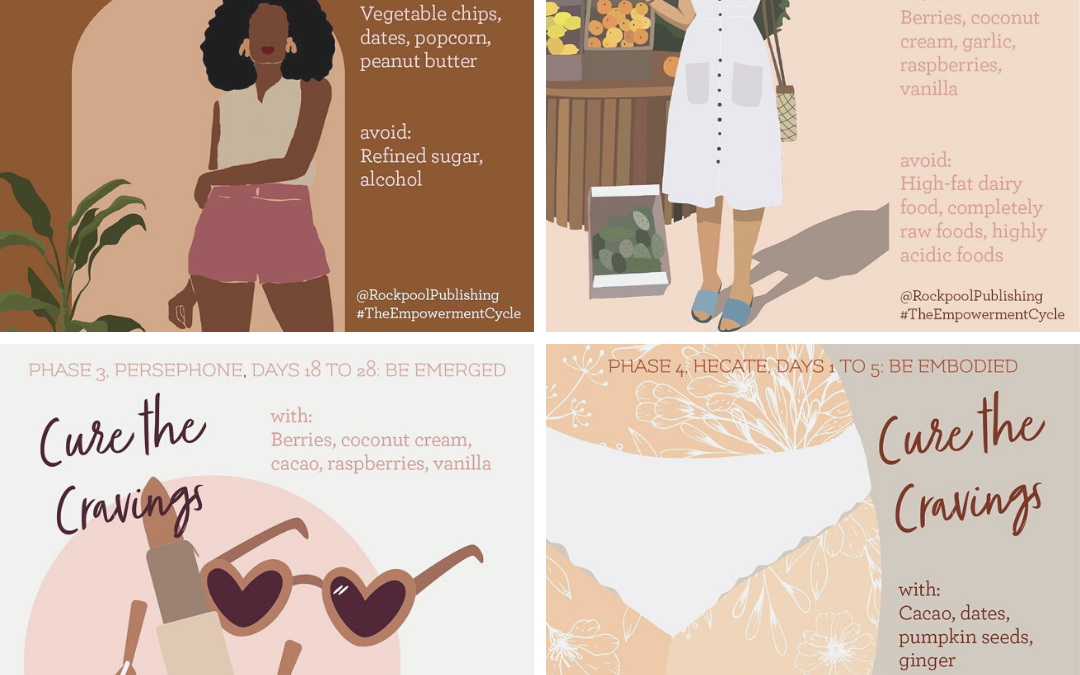We all know that food impacts our health. I know when I am a little off track and consume WAY too much sugar, I can feel the impact both physically and emotionally. My energy and mood are impacted. As our body moves through each month, our hormones change and these changes can be impeded or supported by different things, one being food.
Altering your food throughout the month can support a healthier cycle, allowing each phase to have the healthy and strong changes it needs each month.
In my book The Empowerment Cycle, I outline many foods to look for at the four different phases of the month. Below is a brief outline of each phase and food to consider.
Hecate day 1 to 5
Your body will crave sugar on days one, two and three as it experiences drops in progesterone, estrogen and testosterone levels. The strong decrease in the levels of the mood-stabilising chemicals serotonin and dopamine leading up to and during your period will prompt you to reach for the chocolate, lollies and cakes as well as refined carbs. To combat this, you may need mood-stabilising foods, so a diet with increased tryptophan, B-complex vitamins, essential fatty acids and iron-rich leafy green vegetables will be beneficial.
Daphne days 6 to 12
As this phase follows your period, you need some serious nutrients. Replenish iron stores and eat nutrient- and protein-rich foods to support a healthy uterine lining and a healthy egg in preparation for ovulation. Blood sugar levels are more stable in this phase and therefore you may experience a decrease in appetite.
Your body can metabolise carbohydrates more easily as it is more insulin sensitive; whole grains to get into your diet include quinoa, buckwheat and brown rice. Starchy vegetables including parsnip, sweet potato, pumpkin, green beans and corn will also be beneficial at this time, as will an increase in vitamin C–rich foods.
Demeter days 13 to 16
The optimum food at this time of your cycle will assist the growth of a healthy follicle and egg and promote beneficial progesterone levels. Carbohydrate intake is still good and foods high in zinc and B vitamins are recommended.
Persephone days 17 to 28
In the luteal phase of the menstrual cycle women’s energy intakes and expenditure are increased and they experience more frequent cravings for foods, particularly those that are high in carbohydrate and fat. The decrease in hormones can trigger an inflammatory response, which is thought to be one cause of PMS symptoms. You may notice a change in your appetite as an increased desire for food such as sugar that can give you a lift.
To help reduce premenstrual symptoms, include B vitamins, essential fatty acids, healthy cholesterol and protein in your diet. If you are feeling more depressed or moody than usual increase your tryptophan, which is found in nuts, seeds, tofu, cheese, red meat, chicken, oats, beans and lentils. You may be lacking in vitamin B6, which helps to convert food to energy and assists in the production of serotonin and melatonin.
By looking at and altering your diet throughout your month you can support your body to have a healthier cycle, which can lead to better energy levels, mood and results in your life.

